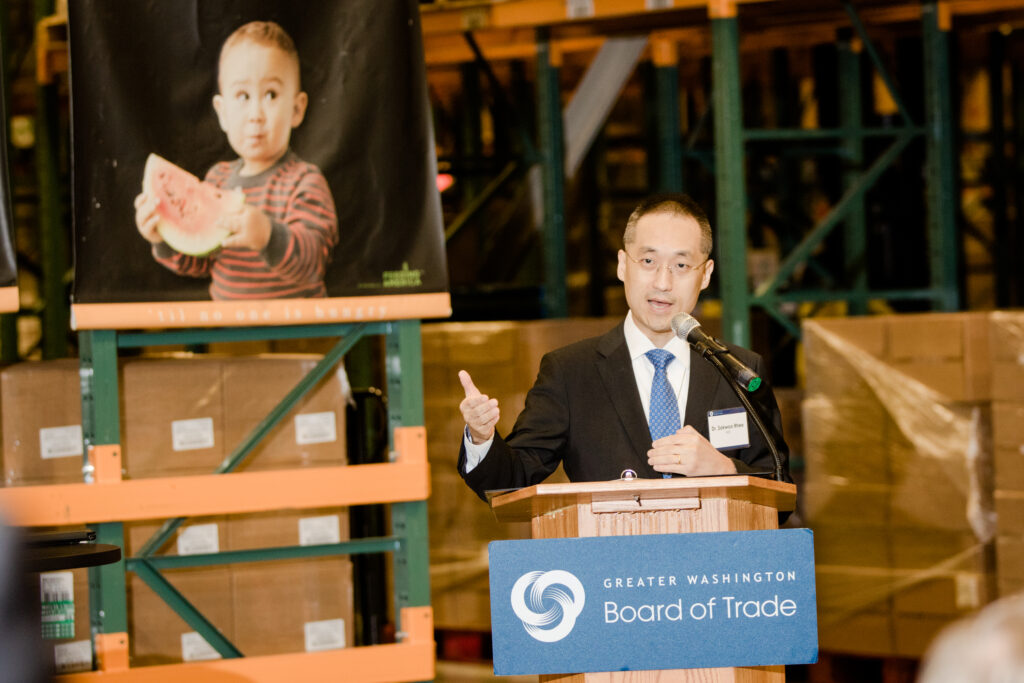Highlights from the Greater Washington Smart Region Movement Signing Ceremony
Last month, we announced a new partnership with the Consortium of Universities and the Council of Governments to make Greater Washington the nation’s leading digitally enabled region. It was a proud moment for us here in the Board of Trade office as well as for the many members who have worked hard to bring our smart region vision to life over the past several years.
To recognize the importance of this moment, representatives of the three founding organizations made remarks and signed a proclamation of support for the Greater Washington Smart Region Movement at our March board meeting.
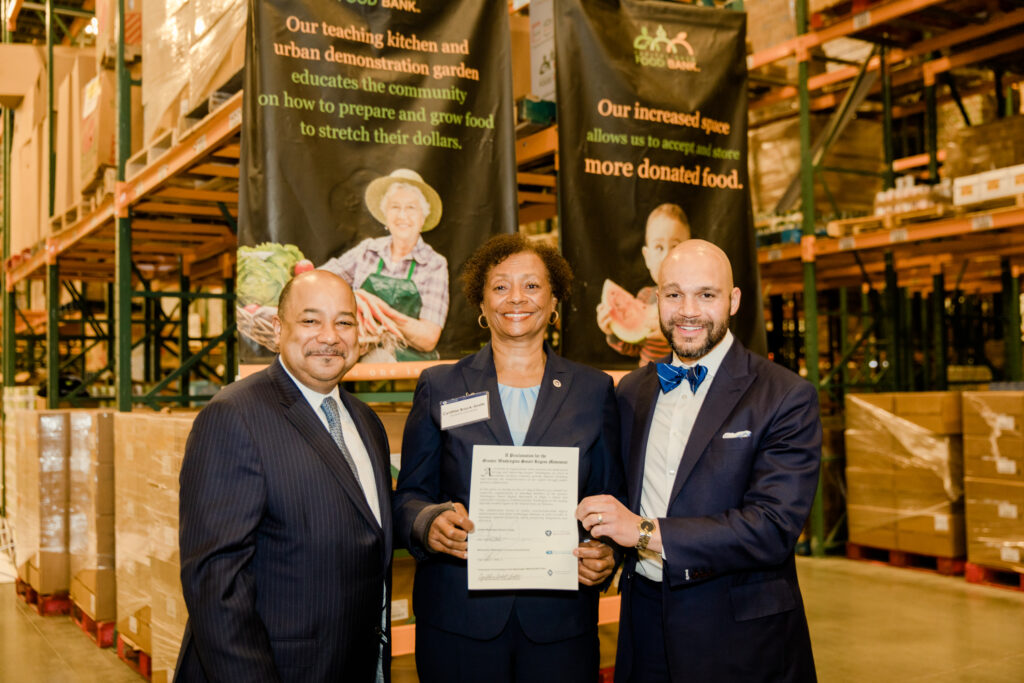
Cynthia Brock-Smith, assistant vice president for external affairs at Howard University, represented the Consortium of Universities. She said, “We feel that universities and institutions of higher education in this region are untapped resources that can help propel this region to the next level.”
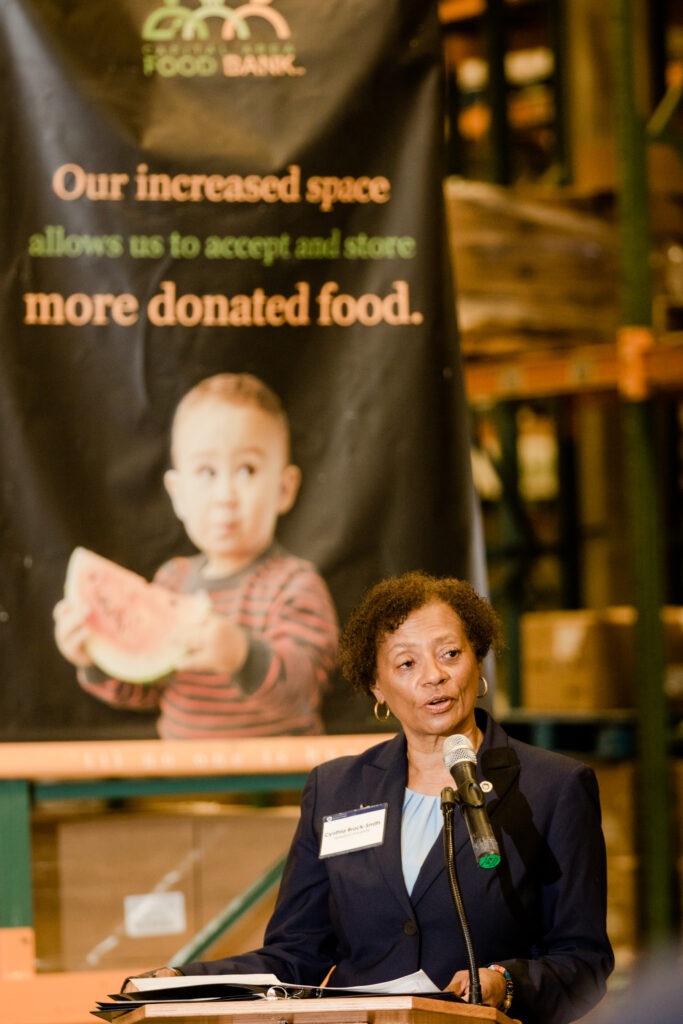
Cynthia explained that Howard University has experience in some of the social, environmental, and economic issues that are being explored through this agreement. “I know many of our partners in the consortium have also been doing work that can help us with the vision,” she said. “We are here to cooperate, collaborate, and achieve results so that this is one of the best places in the world.”
Robert White, Jr., D.C. councilmember and chair of the Metropolitan Washington Council of Governments, was enthusiastically supportive of the partnership and described how it will enable technology providers and governments to better work together.
“I really couldn’t be more excited about this partnership,” said Robert. “The pace of technology and how it is intertwined with our everyday lives has increased substantially… Folks who produce technology don’t always have the same priorities as our government or our businesses. If we have an opportunity to partner and take the lead, create a framework to say, this is how we can develop D.C. into a smart region and use technology to help us with public health, transportation, improving the environment… in so many ways we can set the agenda together.”
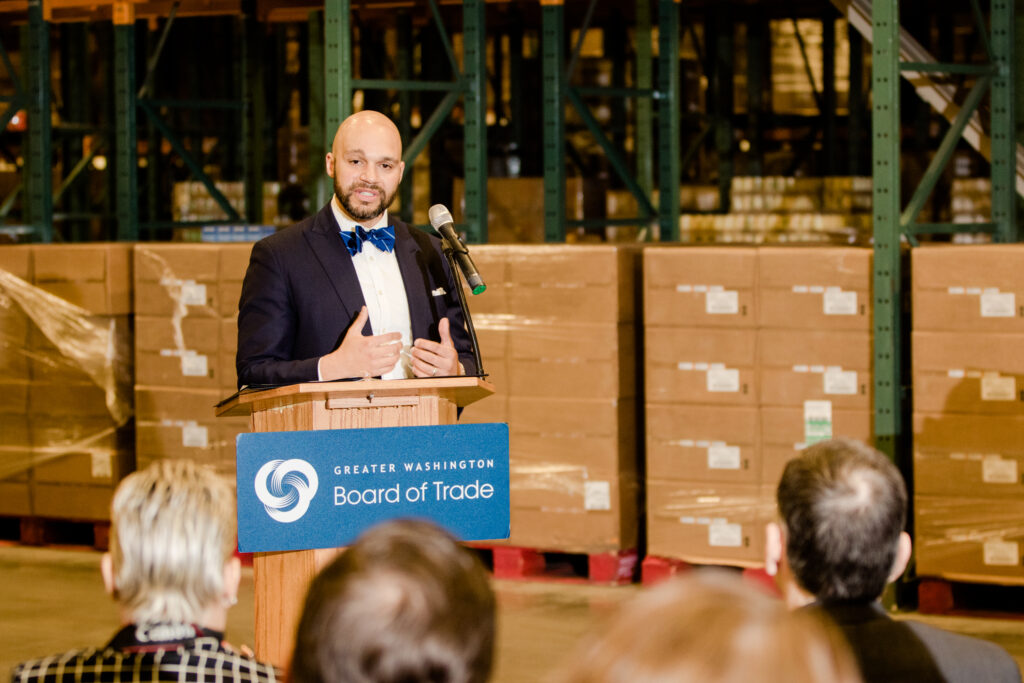
Robert also made the case for working together as a region. “We can do that together as a region, not just D.C. working for D.C., Maryland working for Maryland, Virginia working for Virginia. We can do that collectively, and we’ll get a better bang for our buck if we continue to share priorities, and really highlight this region as a competitive place, a competitive market that can compete not only with other regions around the country but with others around the world.”
Tony Lewis, chair of the Board of Trade and region vice president for Verizon, reminded members in attendance of the big-picture opportunity created by the Greater Washington Smart Region Movement, saying, “We are going to improve the lives of 6 million people in our region, if we start, if we take the steps that are being taken today.”
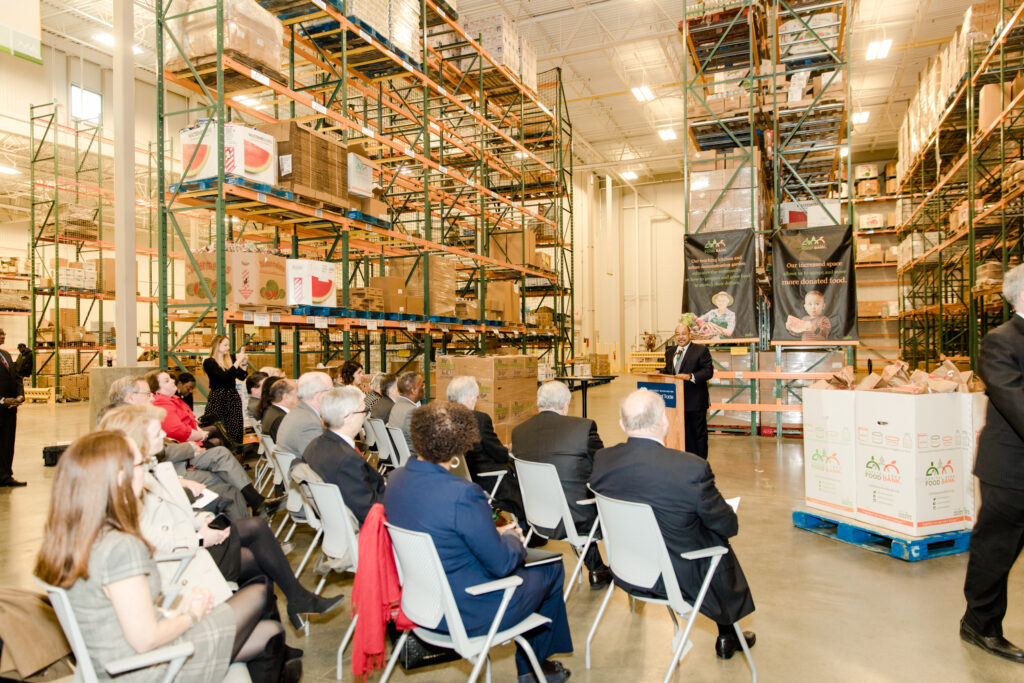
Tony then urged members to actively engage in the initiative. “What happens next? We take full advantage of this opportunity. We grab this by the horns. We ask, what do we do to ensure that the level of cooperation that we saw happen with MetroNow takes on a new life? Because our governments want to help, they want our partnerships. Our students and our universities want more opportunities,” said Tony, adding “This is workforce, this is jobs, this is a better quality of life for every individual, so that those who are in need of food the most have better access to it, faster access to it, and more of it because technology finds way for us to be better citizens.”
Dr. Sokwoo Rhee, associate director for Cyber-Physical Systems Innovation at the National Institute of Standards and Technology (NIST) and leader of the Global City Teams Challenge (GCTC) for SMART Cities/Regions, also shared his thoughts on the partnership. He said that this is a pivotal step in keeping the momentum going and turning ideas into real economic opportunities. He also praised the regional approach taken by the founding organizations.
To learn more about the Greater Washington Smart Region Movement and how you can get involved, contact us.
Become a member today
We need your voice at the table to make Greater Washington a place where everyone can succeed
